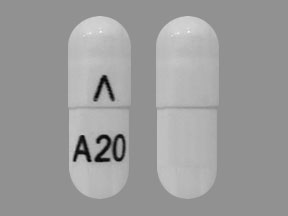
Cevimeline Coupons & Savings Card – Discount Prices from $145.86
Generic for: Evoxac
Cevimeline, marketed under the brand name Evoxac, is prescribed to alleviate symptoms of dry mouth caused by Sjögren's syndrome, an immune disorder. As a cholinergic agonist, Cevimeline functions by activating specific receptors in the salivary glands, thereby increasing saliva production. This action helps alleviate the discomfort associated with dry mouth, making it easier to speak and swallow. Typically, it is administered in a 30 mg capsule form, taken orally three times daily. Common side effects may include excessive sweating, nausea, and headache. Always consult healthcare professionals for personalized medical advice before starting any new medication.
Our coupons are free to use. Before paying, show the pharmacist your Cevimeline savings card to get your free discount. Use our filters below to edit the prescription box to match your needs. The Cevimeline prices will update based on your prescription needs. Above our Cevimeline coupons, you can change your location to see pharmacy prices and costs in other areas. We're here to help you buy Cevimeline at the lowest price with our prescription discount card.
My prescription
Edit
30MG, Cevimeline (270 Capsules)
Select pharmacy

CVS
$145.86
COUPON PRICE
Albertsons
$192.44
COUPON PRICE
Walgreens
$200.79
COUPON PRICE
Walmart
$309.62
COUPON PRICECevimeline savings card
Show this card to your pharmacist
CVS
$145.86
BIN
ID
PCN
GRP
019876
LH43050953
CHIPPO
LHX
Powered by
Cevimeline, marketed under the brand name Evoxac, is prescribed to alleviate symptoms of dry mouth caused by Sjögren's syndrome, an immune disorder. As a cholinergic agonist, Cevimeline functions by activating specific receptors in the salivary glands, thereby increasing saliva production. This action helps alleviate the discomfort associated with dry mouth, making it easier to speak and swallow. Typically, it is administered in a 30 mg capsule form, taken orally three times daily. Common side effects may include excessive sweating, nausea, and headache. Always consult healthcare professionals for personalized medical advice before starting any new medication.
Our coupons are free to use. Before paying, show the pharmacist your Cevimeline savings card to get your free discount. Use our filters below to edit the prescription box to match your needs. The Cevimeline prices will update based on your prescription needs. Above our Cevimeline coupons, you can change your location to see pharmacy prices and costs in other areas. We're here to help you buy Cevimeline at the lowest price with our prescription discount card.
More prescriptions for dry mouth
coupons from$36.23Save 81%
coupons from$1.01Save 93%
coupons from$50.87Save 10%
coupons from$19.53Save 89%
coupons from$63.01Save 43%
coupons from$50.87Save 10%
coupons from$145.86Save 25%
coupons from$9.87Save 66%
More prescriptions for dry mouth
Isopto Carpine Save 81%coupons from $36.23
Xylitol Save 93%coupons from $1.01
Pilocarpine Hcl Save 10%coupons from $50.87
Vuity Save 89%coupons from $19.53
Qlosi Save 43%coupons from $63.01
Salagen Save 10%coupons from $50.87
Evoxac Save 25%coupons from $145.86
Xylimelts Save 66%coupons from $9.87
Cevimeline dosage forms
Use our Cevimeline 30MG coupon with prices from $145.86 for 270 Capsules. You can also use our Cevimeline 30MG coupon with prices from $29.31 for 30 Capsules. We have a Cevimeline 30MG coupon with prices from $62.58 for 100 Capsules.
Dosage Quantity Price from Per unit 30MG 270 Capsules $145.86 $0.54 30MG 30 Capsules $29.31 $0.98 30MG 100 Capsules $62.58 $0.63
| Dosage | Quantity | Price from | Per unit |
|---|---|---|---|
| 30MG | 270 Capsules | $145.86 | $0.54 |
| 30MG | 30 Capsules | $29.31 | $0.98 |
| 30MG | 100 Capsules | $62.58 | $0.63 |
